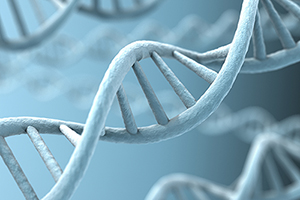There are so many diets out there: Vegan, low-carb, flexitarian, paleo, high-protein, gluten and casein-free, and keto to name but a few. How to choose?
This was already on my mind in 1989 when I wrote my first book, The Diet-Type Weight Loss Program. Don’t look for it, it’s out of print. But the idea behind it was prescient: Can we reduce the random process of diet choice to a scientific algorithm based on personal characteristics?
The idea was to collect information about health factors and personal preferences and summate test scores to yield a diet prescription. And this was well before the advent of computer-driven apps that could quickly crunch all that data, so you had to keep your Texas Instruments calculator handy when you waded through the book’s self-tests.
So great is the appeal of a scientific methodology that would steer you to your ideal diet that it propelled Eat Right 4 Your Type—a scheme that matched each of 4 blood types to diet recommendations—to the bestseller lists in the 90s.
While the science was tenuous, many people felt better and lost weight, which often happens when you exclude foods like grains or dairy.
Years later, the mapping of the human genome ensued, carrying with it the promise that we could predict disease risk, even personality, based on high throughput analysis of a saliva sample.
And the term nutrigenomics was coined, meaning “the scientific study of the interaction of nutrition and genes, especially with regard to the prevention or treatment of disease.”
Unfortunately, the payoff of nutrigenomics has been elusive. Sure, ads constantly tout: “Lose weight with an individualized diet plan tailored to your DNA.” But until now, there’s been scant evidence that there’s more to this than science fiction.
I’ve even test-driven some of the DNA profiles that purport to tell my patients how best to eat. They’ve told some of my overweight, insulin-resistant patients that they should avoid animal fat and have plenty of whole grains—which I know is wrong. Often, they reflect the bias of test developers who hew to some form of plant-based diet, ignoring the potential of low-carb paleo or keto diets to score major health benefits. The clinical instincts I’ve acquired over many years of practice contradict their pat recommendations. So, I stopped using them.
I now use genetic testing on a more sophisticated level to spot predispositions to impaired detoxification, heart disease, cognitive decline, histamine intolerance, autoimmunity, impaired methylation and other glitches; profiles can prompt me to supplement more B vitamins, vitamin D, choline, magnesium, or other nutrients to bolster genetically-determined weak metabolic pathways.
Still, I no longer accept as gospel any test-generated recommendations as to diet. But in the next few years, that may change. New tools may enable nutrigenomics to deliver on its promise.
The most recent edition of the American Journal of Clinical Nutritionfeatures an article that’s a tongue-twister: “Modeling of an integrative prototype based on genetic, phenotypic, and environmental information for personalized prescription of energy-restricted diets in overweight/obese subjects.”
It’s complicated, but to my mind this little-noticed research paper represents a milestone because it’s the first confirmation of the effectiveness of genetic testing to guide diet choices for optimizing weight loss.
The researchers looked at 95 single nucleotide polymorphisms (SNPs) in 201 overweight or obese subjects. They found 13 had impacts on “energy homeostasis”, i.e. fat-burning.
They discovered that, by applying genetic analysis, they could better predict responses to either of two test diets: a moderately high protein diet vs. a low-fat diet.
They admit to limitations of the study: It was of short duration (only 4 months); it only studied European subjects, so the results may not be applicable to other ethnic or racial groups; and, most importantly, it only looked at two diet interventions.
The diets were kind of wishy-washy in my opinion. Of interest would be to contrast more polar opposite diets, e.g. a carnivorous high-fat keto diet vs. an ultra-low-fat vegan diet.
And the human factor isn’t accounted for: Just because a prescribed diet is “ideal” for someone, it doesn’t automatically guarantee long-term adherence.
The study authors write that additional diet-related SNPs may yet need to be discovered. Additionally, the influence of the microbiome might need to be factored in. Could sophisticated poop tests eventually become integral to a future comprehensive assessment of optimal diet strategies?
The science is still a little crude, but I’m sure it’ll be refined with subsequent research. This has long been the Holy Grail of nutritional science. Artificial Intelligence (AI) and machine-learning may help knit the numerous variables into a coherent picture beyond the crude “spit-balling” that we nutrition professionals currently have to resort to when reviewing patient labs.
The study authors conclude on a positive note:
“This holistic approach may lead to personalized dietary advice using precision nutrition standards for the prevention and management of excessive body weight and an increase in the success of weight-loss treatments, where age, sex, phenotypic variables, and genetic characteristics are important in the individualization process.”
Sounds like The Diet-Type Weight Loss Program! I’d love to see the promise I envisioned over thirty years ago come to full realization within my lifetime.





